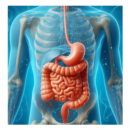NEW RESEARCH: NEUROPOD CELLS AND GLP-1
I am on the Gut-Brain/Metabolic/Stress Train again this week.
Why? Because here is some relatively new research available that helps us connect the dots and provides a fresh perspective. It helps us understand why we crave sweets or foods that the body perceives as sweet when we are under stress. We also look at the importance of hunger signals and food cravings.
We also now understand through new research and the results that Ultra Processed foods have a unified taste and it does not match up with human biology and therefore does not signal the brain that we are full and therefore we tend to overeat these foods.
Then there is the GLP-1 a hormone that is produced in the intestine that blocks glucagon secretion: Glucagon is a hormone your body uses to raise your blood sugar levels when necessary. So, GLP-1 prevents more glucose from going into your bloodstream. Slowing stomach emptying: Slower digestion means that your body releases less glucose (sugar) from the food you eat into your bloodstream.
Fasten your seat belts … this is a longer Geeky Post!!
5 THINGS YOU DIDNT KNOW ABOUT GLP-1
Here are five things Jefferey Bland the Father of Functional Medicinewants you to know about GLP-1 that you probably haven’t heard about.
- GLP-1 activation is linked to taste receptors, and there are taste receptors throughout your body, not just on your tongue.
- Taste receptors in the mouth have been found to be the same receptors found in the intestinal tract. (New science: Our gut is tasting our food.) More on that topic below!
- These receptors in the gut then use taste data to communicate with our immune system.
- Sweet taste activates a specific series of receptors in the gut that increase immune activation and an inflammatory response.
- Bitter taste activates a different set of receptors in the gut that reduces immune activation and inflammatory response, and activates GLP-1 production
STRESS RAISES CORTISOL AND BURNS GLUCOSE
We all know that the last four years has triggered a lot of mental and emotional stress for all of us. If the body stays in a state of stress and it becomes chronic, it is very inflammatory to the body and the brain.
We know that chronic stress can cause a cascade of symptoms in the body and brain. Things like hormone dysregulation, gut problems, skin issues, body pain, swelling and much more. The other thing that chronic stress does, is it depletes brain function and causes mood challenges.
WHY? STRESS BURNS GLUCOSE THE #1 SOURCE OF FUEL FOR THE BRAIN!!!
We have known for a while that there is this GUT – BRAIN axis and that the Vagus nerve is an integral part in the connection. The Vagus nerve does other things too, however its most important function is calming the nervous system ” Rest” and preparing the body to “Digest”.
GUT- BRAIN-AXIS : NEW RESEARCH : NEUROPOD CELLS AND GLP-1
We are familiar with replacing fuel when we stress our bodies physically. We are not however as tuned into how our mental emotional stress affects us. If our brain has been on fire for too long and it has used a lot of its preferred source of fuel (glucose) we feel a dip in concentration and a dip in blood glucose. We might feel tired, have vision changes, we are moody, or shaky, or foggy, anxious and we lose the ability to concentrate. When that happens we look for something sweet or savory/salty like chips. We want something that breaks down to sugar quickly or has hidden sugars in them. These foods also trigger Dopamine our pleasure center and possibly GABA our calming hormone.
That is where this new research out of Duke University gets interesting:
NEW RESEARCH – NEUROPOD CELLS
There are cells that line the stomach that are called Neuropods and they detect sweet, sugar and hidden sugars in foods as well as foods that break down quickly to sugar.
These Neuropods have a direct path to the brain, but they also recognize when you try to bio hack your sweet tooth by using artificial sugars.
So you can now see the connection and how patterns of addiction to sweet foods and drinks can be triggered by the GUT-BRAIN axis and Dopamine our pleasure center and not by the taste receptors in the mouth.
Here is a excerpt on this Research from Duke
“Not long after the sweet taste receptor was identified in the mouths of mice 20 years ago, scientists attempted to bio hack those taste buds . But they were surprised to find that mice could still somehow discern and prefer natural sugar to artificial sweetener, even without a sense of taste.
The answer to this riddle lies much further down in the digestive tract, at the upper end of the gut just after the stomach in the intestine.
In a paper appearing Jan. 13 in Nature Neuroscience, “we’ve identified the cells (Neuropod) that make us eat sugar, and they are in the gut,” Bohórquez said. For More info click here
BLUNT SUGAR CRAVINGS TO IMPROVE BRAIN FUNCTION, DECREASE HUNGER AND LOSS WEIGHT
We talked about a lot about how to blunt cravings and improve metabolic in previous newsletters. Here is the link in case you missed it
HOW TO BIO HACK NEUROPOD CELLS AND TRIGGER GLP-1 NATURALLY
- Fast Food. Restaurants … beware there are hidden sugars in savory foods
- Sweet drinks are a big problem
- Add Bitter Herbs to your Diet
- Artificial sweeteners do not curb the brain’s need for glucose.
- A full glass of water with lemon or lime in the morning can reduce sugar cravings
- Make sure you get adequate protein from clean sources to ensure you get all your Amino Acids.
- Eat Whole Foods and cut out highly processed foods as they contain hidden sugars
- Eat the carbs on your plate last
- Take intentional breaks from tasks that require a lot of mental focus
- Make sure you are hydrated
- Build in short rest/movement breaks in your day
- Sit for 10 minutes before you eat… without looking at your screen or checking email
- Last but not least: The Herb “Gymnema” is known for it’s ability to curb a sweet tooth.
Last but not least if you love science and want to learn more on Food Cravings, GLP-1 and how Neuropods work, then I highly recommend Huberman Lab Podcast episode “Sugar and the Brain” and “Control your Hunger”
As always if you are looking for support with your metabolic health and want to take proactive measures to ensure wellbeing for the future, then I have started a wait list for Mid August.
Text or Email me : 214 8696404
Happy Summer –
Dr Pia











